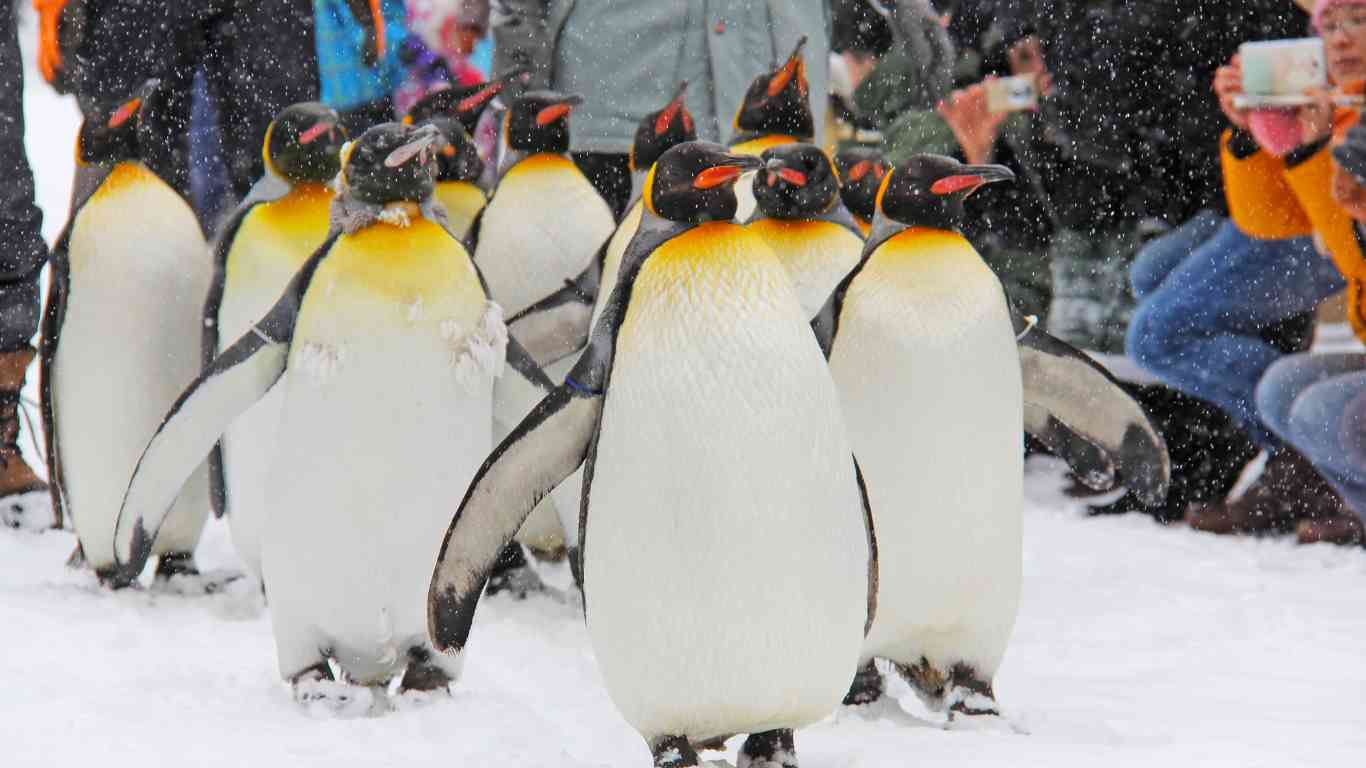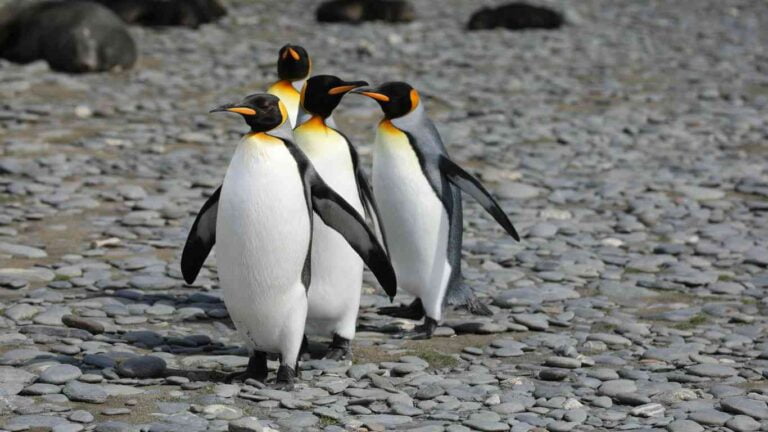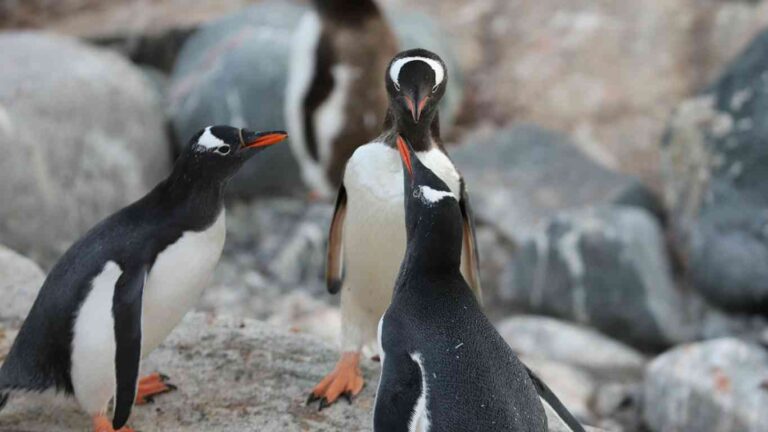Are Penguins Friendly or Do They Attack Sometimes?
When it comes to the animals we encounter, be it in the wild or in a controlled environment, you need to be wary regarding their temperament. Are they friendly, aloof, or possibly aggressive towards humans?
Penguins, the charismatic birds are no different in this regard. We often interact with these animals in zoos or perhaps encounter them on trips to polar shores.
Let’s discover fascinating insights regarding penguin behavior in the wild and in captivity.
Are Penguins Friendly to Humans?
Penguins are usually friendly animals and may seem approachable in zoos where they are used to people. Yet, as wild animals, they may react defensively if they feel threatened.
Many animals, driven by curiosity, engage with their surroundings and sometimes with humans.
Penguins often exhibit this curiosity around humans without apparent fear, but interpreting their behavior as friendliness could be inaccurate.
Penguins in wildlife sanctuaries and nature reserves often approach humans due to their lack of predators, giving the impression they are fearless.
However, this behavior should not be interpreted as a desire for human interaction.
These aquatic birds are used to people, particularly in tourist spots. They often come near visitors and can be seen up close, but they keep a reasonable distance, which humans should respect too.
Penguins are wild and curious animals, but since they are not domesticated, their behavior can be unpredictable.
Do Penguins Attack People?
Penguins rarely attack people and are generally not aggressive. Most species are shy and would retreat rather than attack people.
Penguins, though typically mild-mannered, can become aggressive when they feel threatened or stressed, typically during territorial conflicts, mating competition, or when defending their chicks.
Humans may unintentionally disturb penguins by getting too close, especially during breeding season when the birds are highly defensive of their nests and young.
Penguin bites or pecks may happen when they feel threatened or mistake fingers for food, especially during feedings in zoos.
Interpreting animal behavior can be challenging, particularly when trying to differentiate between aggression and a signal that an animal has reached its limit.
Despite their seemingly benign appearance, it’s crucial to remember that penguins are wild creatures with their own behavioral codes and boundaries.
Are Penguins Friendly to Each Other?
Penguins typically show friendly behavior toward each other because they are social birds, living in large colonies where cooperation is essential for survival.
Penguins live in large colonies, which can sometimes consist of thousands of individuals, suggesting a certain level of sociability.
Within these communities, penguins exhibit behaviors that denote cooperation and a semblance of friendliness.
For instance, they huddle together for warmth in the bitter cold of Antarctic climates, suggesting an instinctual understanding of mutual benefit.
During mating season, penguins engage in courtship rituals like preening each other and calling to each other, which help form strong bonds.
These bonds are especially evident as penguin parents show remarkable teamwork in raising their young, sharing responsibilities like incubating eggs and gathering food.
Nevertheless, like all animals, penguins also have their moments of competitiveness and aggression, especially when it comes to territorial disputes or fighting for resources.
This competitive behavior, while it might seem unfriendly, is a natural part of their survival strategy.
(Featured image by Sharon Ang from Pixabay)







